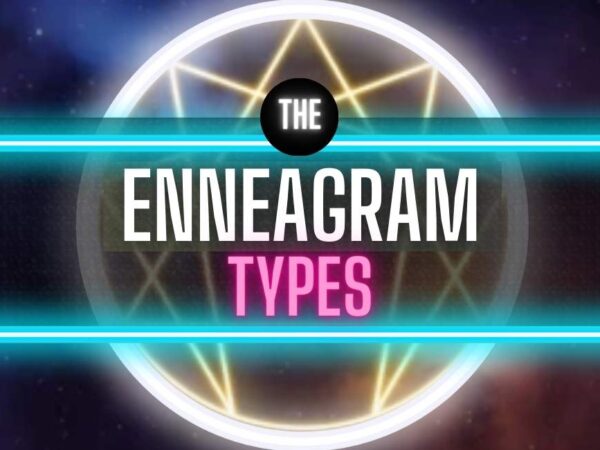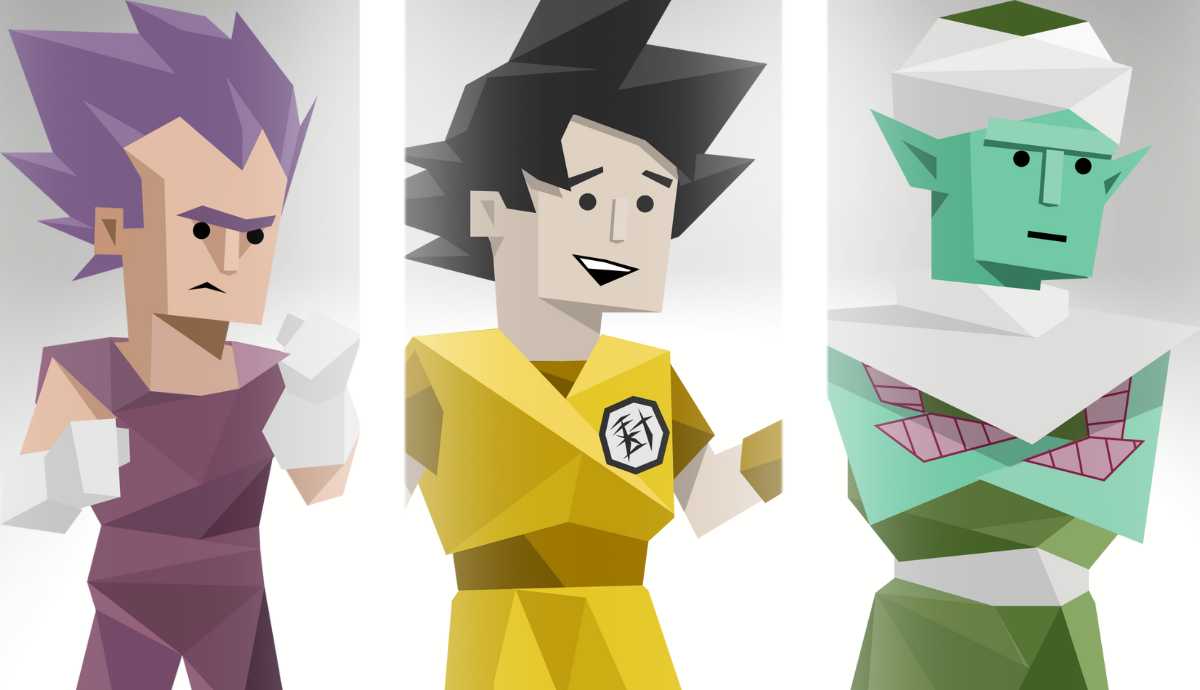The Enneagram, which literally means “drawing of 9” is a personality system or framework that sorts human personality into 27 distinct subtypes derived from nine primary types. The Enneagram makes use of archetypal patterns of personality that have been around for ages. It provides a useful and objectivistic model for understanding ourselves and the lens through which we perceive and interact with the world around us. Here is a brief look at the 9 basic types and what they mean.
TYPE 1: The Perfectionistic Reformer.
Defined by their strong moral compass, Type Ones have a clearly defined sense of right and wrong that leads their actions and aspirations. They aim to achieve their goals through strict adherence to their inner principles and integrity, perpetually striving for perfection.
Although they may come across as strictly adhering to rules, Type Ones only answer to their inner perception of how things “should” be. They seek perpetual change for the better and aim to improve the world through their vision of higher, better values. They are diligent and practical towards effective action and value their attention to detail and efficiency.
However, Type Ones tend to put aside their emotions for the sake of what they deem the greater good, often attempting to disregard their problems and inner turmoil by focusing on organizing and controlling everything around them. As such, Type Ones often tend to have issues with repression and self-control and often suffer if they fail to live up to their self-imposed high standards.
At their worst, most unhealthy levels, Ones can risk becoming self-righteous and intolerant, sometimes bordering on hypocritical.
- Primary Traits: Ethical, sensible, disciplined, driven, structured, diligent.
- Primary Fear: To be factually and ethically wrong. To be corrupt.
- Primary Desire: To achieve integrity and goodness. To improve the world.
- Primary Weakness: Resentment and frustration at not meeting self-imposed high standards.
TYPE 2: The Gentle Giver.
Type Twos are defined by the importance they give to their interpersonal relationships. As such, they seek to establish bonds through kindness and generosity and believe in going out of their way to assist others, finding joy in doing good deeds.
At the core of their actions, Type Twos have a deep sense of empathy that helps them understand the emotions and needs of others without any need to verbalize them. This trait makes them the perfect supportive friend, parent, and partner, as they will do whatever it takes to help the people they form bonds with.
Type Two’s generosity is motivated by their desire to be loved—they believe that through displaying extraordinary kindness and generosity, they earn the love of the people closest to them. This puts Type Twos at risk of having self-worth issues, as they may believe they have no intrinsic value and are only loveable as long as they are helpful.
At their most unhealthy, Type Twos turn from selfless to selfish—they might feel entitled to have what they want as payment for their “kindness.”
- Primary Traits: Kind, warm, gentle, caring, nurturing, patient.
- Primary Fear: To be unlovable. To be alone.
- Primary Desire: To be loved and appreciated.
- Primary Weakness: Neglecting to take care of themselves to focus outward, hoping that others will do so for them as a sign of affection.
TYPE 3: The Driven Achiever.
Aiming to stand out above the crowd, the Type Threes are some of the most charismatic personality types around. Competent and ambitious, they seek success restlessly and make sure to project an image of confidence to distinguish themselves from others.
Chasing success determinedly, Type Threes seek to develop their talents and become the best version of themselves they can be in any field of their preference. They might be stubborn and competitive, but their achievements often make them well-liked and respected individuals—perhaps even admired. They are the charismatic and accomplished leaders of the world, and their drive is essential to get things done.
However, Type Threes are not happy just being successful—they also have to come across that way. As such, they can sometimes neglect their interests in favor of projects and goals that fit within other people’s expectations.
At their worst, Type Threes may focus on projecting an illusion of themselves that might not be true, losing their sense of self in the process.
- Primary Traits: Competent, ambitious, driven, charismatic, goal-oriented, competitive.
- Primary Fear: To be worthless. Failure.
- Primary Desire: To feel accomplished and valuable.
- Primary Weakness: Focusing on maintaining the image of success they project while neglecting to pay attention to their personal needs.
TYPE 4: The Introspective Individualist.
Distinctive and expressive, Type Fours are essentially unique souls—quirky, alternative, and difficult to categorize. However, beyond their often eye-catching demeanor and sense of individuality lies a rich interior world.
Type Fours are uniquely introspective and spend much of their time understanding themselves, their virtues, and their flaws. They are exceptionally self-aware and use this knowledge to improve themselves, yet always remaining true to who they are and respecting their individuality in all their uniqueness. This extraordinary intuition makes Type Fours highly creative and romantic, seeking connections with those who understand their true self.
However, this continuous introspection often makes Type Fours perceive themselves as unique and different from others, possessing exceptional qualities and devastating flaws. These circumstances often lead to low self-esteem and a negative self-image, as they can be entirely too aware of their shortcomings.
At their most unhealthy, Type Fours can isolate themselves and internalize feelings of inadequacy while envying others they perceive as better.
- Primary Traits: Creative, sensitive, introspective, reserved, melancholic, compassionate.
- Primary Fear: To be meaningless.
- Primary Desire: To be themselves. To be special.
- Primary Weakness: Negative self-image and feelings of inadequacy make them feel alone and defective.
TYPE 5: The Secretive Investigator.
Inquisitive and clever, Type Fives have a rich inner life full of complex thoughts and intellectual pursuits, aiming to deepen their understanding of matters they deem necessary. They can often be the “mad scientists” of the world—clever and innovative yet slightly scattered.
Driven by trying to understand how things work, Type Fives have an unavoidable need to delve deep into the world of thoughts to keep learning. In turn, this leads them to neglect the happenings of the real world and often prefer to sit back and witness reality to discover something new rather than participate in social activities.
Their drive to discover the undiscovered makes Type Fives visionaries that can perceive and study things no one else can. They also tend to build their identity around knowledge and seek to develop a skill to perfection to navigate through life and remain self-sufficient on their terms. However,
At their worst, Type Fives can focus excessively on their inner world, neglecting or outright antagonizing social bonds and reality.
- Primary Traits: Rational, curious, perceptive, thoughtful, independent, withdrawn.
- Primary Fear: To be helpless.
- Primary Desire: To be competent. To understand.
- Primary Weakness: Detaching themselves from reality and social connections by pursuing their inner world, becoming confrontational and nihilistic.
TYPE 6: The Committed Skeptic.
More than any other personality, Type Sixes seek security and stability in their lives and work hard to achieve it. Reliable and diligent, they are experts at detecting problems and have developed the skills required to solve them.
Type Sixes’ predilection towards stability makes them incredibly loyal and committed to what they know and love—be it friends, family, communities, systems, or beliefs. They thrive around a system that can support them. In turn, they fiercely defend it, making them some of the most devoted friends and also exceptionally team-oriented and cooperative. However, this undying loyalty to their systems can make Type Sixes resistant to change if it shakes their hardly-earned security.
It is essential to highlight that Type Sixes’ deep trust towards their support system has roots in their predispositions towards over-thinking. Since they yearn for stability, their minds are perpetually searching for the next threat to avoid, which leads them to believe they need a support network to face any potential risk. Without them, Type Sixes may become indecisive and anxious.
Type Sixes may be insecure and paranoid against countless risks and dangers, making them reactive and defensive at their most unhealthy.
- Primary Traits: Cautious, thoughtful, reliable, hardworking, responsible, indecisive.
- Primary Fear: To lack security and safety.
- Primary Desire: To be safe. To have support.
- Primary Weakness: Their tendency to prepare for the worst makes them anxious and apprehensive, unable to relax.
TYPE 7: The Spontaneous Enthusiast.
Cheerful and fun-loving, Type Sevens are the optimistic and spontaneous “life of the party” wherever they go. They see the good in everything they do and try to keep an upbeat outlook in life, perceiving it as an endless adventure waiting for them to take the first step.
Bold and daring, Type Sevens are not afraid to explore their surroundings, and seek perpetual mental stimulation by jumping onto the next fun, intriguing journey. Quick-thinking and clever, they tend to develop a wide range of interests that they explore restlessly—at least while they remain interesting. Type Seven’s aversion to boredom can make them fickle and scatter-brained. Still, if something catches their attention perpetually, they will dedicate themselves to it thoroughly with a big smile.
But behind their childlike enthusiasm, Type Sevens can hide a fear towards the negative aspects of life, seeking to keep their minds busy to avoid dwelling on their fears and anxieties. Likewise, Type Sevens might develop a “fear of missing out” that can lead to them being indecisive and trying to take more than they can handle.
At their worst, Type Sevens can become hedonistic in their search for the next big thrill, often to ignore their problems.
- Primary Traits: Cheerful, optimistic, practical, curious, adventurous, spontaneous.
- Primary Fear: To suffer. To be stagnant.
- Primary Desire: To be happy and satisfied.
- Primary Weakness: Their fear of pain and missing out on things can make them seek experiences and stimulation to fill an inner void.
TYPE 8: The Strong Challenger.
Confident, assertive, and resourceful, Type Eights pride themselves in their strength and resilience, boasting unparalleled willpower and energy levels that they redirect towards their goals. More than anything, Type Eights seek to develop the skills to be powerful enough to protect themselves and what they care about, making them champions for justice and defending the weak.
Type Eights dislike being controlled or powerless, so they seek to establish themselves as leaders who can retain the independence they crave. Stubborn and tough, they do not concern themselves with what others may think of them, yet remain honorable and reliable—true leaders that seek to protect and use their talents to improve the world around them.
However, Type Eights’ fear of powerlessness and weakness can also become a fear of showcasing emotional vulnerability, making them put on a metaphorical wall to shield their feelings and protect themselves. If they can overcome this, Type Eights can become fiercely loyal and defensive of those they trust.
At their most unhealthy, Type Eights can become aggressive, intimidating, and belligerent to impose their power and will upon others.
- Primary Traits: Confident, determined, decisive, protective, independent, stubborn.
- Primary Fear: To be weak. To be controlled.
- Primary Desire: To be strong. To protect.
- Primary Weakness: Their desire to be independent can make them temperamental and confrontational, avoiding vulnerability.
TYPE 9: The Kind Peacemaker.
Type Nines value peace and harmony above all things. Kind and serene, they are gentle souls who seek to establish connections with others, aiming to create peaceful and nurturing environments that grant them peace of mind. To achieve this goal, Type Nines will work restlessly to ensure healthy and positive dynamics between the individuals that surround them.
This is possible because Type Nines are empathic and quick-minded—they can easily see all sides of an argument and make convincing statements to connect two conflicting positions. They do this solely because they enjoy the simple things in life, making them excellent negotiators and peace-makers. Likewise, their supportive nature and calm disposition make them unparalleled mediators for interpersonal conflict.
However, Type Nines tendency to avoid conflict can often make them suppress their inner desires and give in to the wants of others, as well as minimizing their issues for the sake of maintaining peace out of a sense of feeling like their needs don’t matter. Likewise, Type Nines can fail to express their anger and may instead become passive-aggressive.
At their most unhealthy, Type Nines can be self-critical and apathetic, lacking drive and obtaining inner peace through escapism.
- Primary Traits: Patient, kind, supportive, reassuring, collected, agreeable.
- Primary Fear: To be in conflict. To lose connections.
- Primary Desire: To have peace of mind. To feel at ease.
- Primary Weakness: They can become complacent to conflicts solely to avoid them, becoming stagnant to protect their inner peace.
Conclusion
Knowing your Enneagram type can illuminate understanding of yourself and others and bring awareness to what you do and why you do it. This kind of self-knowledge can help bring clarity to our lives that can lead us to better relationships and stimulate personal growth. By reading the type descriptions above, you can probably recognize which one applies to you, but you can also find out by taking questionnaires offered by various places on the web. This has just been an introduction so stay tuned for future posts exploring further the Enneagram personality types!
related posts:
- 27 Subtype Profiles Enneagram
- The Enneagram Singapore
- Harry Potter Enneagram Types
- 7 Misunderstood Bad Guys Who Are (Kind of) Right
- The MBTI Types of Game of Thrones Characters
- The MBTI Types As Iconic Space Aliens
- The Cognitive Blind Spots of Each MBTI Type
SOURCES:
- ISFJ and ISTJ in love: 5 Essential Dynamics of their Relationship - February 24, 2024
- ENTP and ENTJ in love: 6 Critical Dynamics of Their Relationship. - February 18, 2024
- ESTJ and ESFJ in love: 4 Key Aspects of their Relationship. - February 12, 2024





